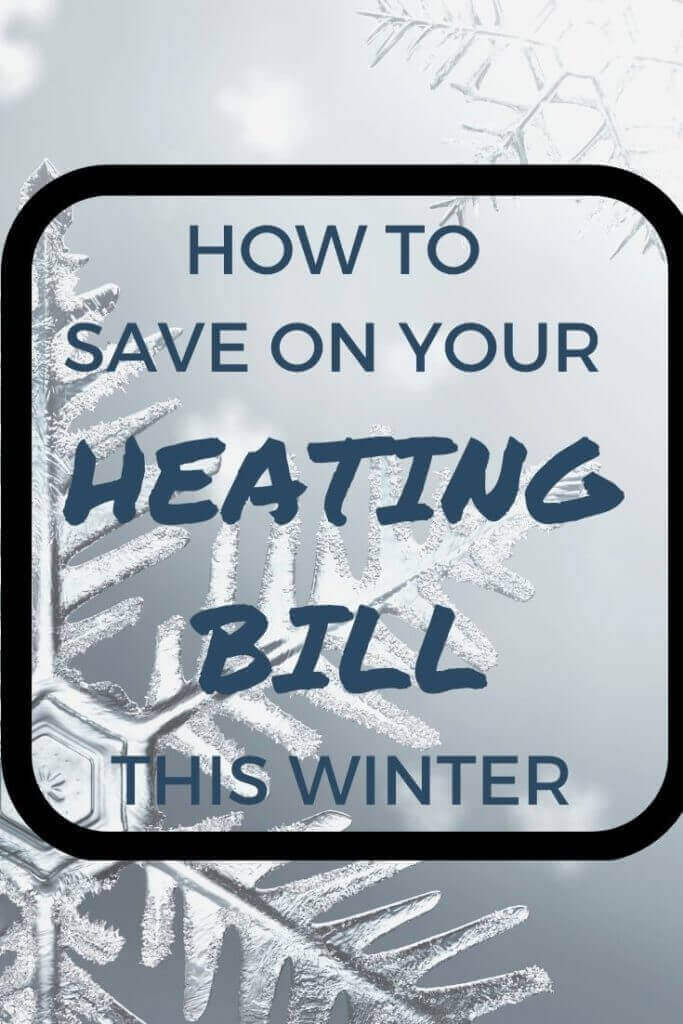It’s a common question — how to reduce your gas bill, and especially, how to lower your gas bill in the winter.
If you heat your home with natural gas, you’re using one of the most efficient methods. And you aren’t alone. Over 48% of American homes use natural gas as their primary heating source. But that’s not much help when you get that whopping winter natural gas bill.
The Energy Information Administration (EIA) projects that natural gas winter heating bills for 2024-2025 will be similar to last year, with approximately 4% higher gas usage. This winter is expected to be mild, but extreme weather events also occur.
Here are our top 9 tips to lower your heating bill and save money on heating costs.
Lower Your Winter Heating Bill
Get the DIY Home Energy Audit download plus our energy savings newsletter.
"*" indicates required fields
How to Save on Your Gas Bill in Winter
Here are the 9 ways to save on winter natural gas heating costs for your home. Each of these tips to save money on heating can add up to real savings on your natural gas bill.
- Check Your Gas Bill. If you are in a deregulated energy market like Georgia or Ohio and switched to an alternative supplier, check your bill. Look to see if you are on a month to month variable rate. If you are, you should shop for a natural gas plan to lock in a low rate. If you’ve never shopped, check and see if you can save by switching to an alternative gas supplier.
- Find the leaks. Perform a DIY Home Energy Audit at the start of the heating season. You’ll identify areas where cold air is leaking into your home, such as windows, doors, electrical outlets and plumbing. Use spray foam to reduce air leaks around utility cut-outs for pipes (“plumbing penetrations”) under the sink. And make sure electrical outlets and wall plates on your outside walls are properly insulated.
- Seal Windows. During your DIY home audit, you’ll check your window seals. According to Energy.gov, heat lost through leaky windows accounts for 10 to 25 percent of your overall heating bill. One fast way to stop the air leak is to seal the window using commercially available clear plastic film and your hair dryer. (Note: for fire safety, don’t seal your bedroom windows.)
- Control humidity. Especially in colder climates, home humidity is an issue. Dry winter air pulls moisture from your skin, making you feel colder. Instead of reaching for the thermostat, use a humidifier to keep your home humidity between 30 and 50%. You’ll feel warmer with some humidity in the air.
- Don’t Use the Fireplace. As much as 80% of the heat produced in your fireplace goes right out the chimney. And as it leaves, cold air is being drawn indoors through leaks in your home’s exterior walls and windows. Consider investing in a natural-gas fired stove for your hearth instead. You’ll have the look of a fireplace, but a much more efficient heating result. Contact a licensed plumber to run any new natural gas piping you may need.
- Install an Attic Tent. An attic tent insulates the attic access door from the rest of the house. This will ensure that warm air isn’t escaping into your attic.
- Dress for the Weather. Feel cold? Put on a sweater instead of reaching for the thermostat. There’s no reason to heat up the whole house when you feel a chill. Keep your central core warm with a sweater, and wear slippers or socks around the house.
- Insulate Your Water Heater. An insulated natural gas water heater will operate more efficiently. This is especially important if your water heater is located in your garage, basement, or other non-insulated space. You can purchase a water heater blanket online or at most local hardware stores. Regular water heater maintenance can keep your water heater operating at peak efficiency.
- Use Space Heaters. A space heater can warm the room you’re in so you don’t have to heat the whole house. That’s especially important when you have central heating. Today’s modern space heaters are energy efficient and have automatic safety features to avoid over-heating.
In addition to these tips, use energy-saving thermostat settings for winter. Setting your thermostat properly can have the biggest impact on your bill. Heating and cooling your home accounts for 50% of your energy bills.
I Got a High Unexpected Gas Bill. Why?
In most parts of the country, monthly gas prices creep up around winter. This is natural: You’re using more heat to keep your home comfortable. You might also invite friends and family over around the holidays, cooking to accommodate everyone around your table.
But in some cases, an unexpectedly high gas bill is a significant concern:
- It can signal a pipe or appliance leak that might be inside your home or due to an exterior line break. Notice something that smells like rotten eggs? Open your windows and doors, direct all occupants and pets outside and call 911 from a safe location.
- It might be due to your natural gas plan. Started with a variable rate? For these plans, you might have a few months of lower bills before they suddenly and sharply swing upward.
- You made some updates to your household, like a new appliance, and you’re consuming more gas as a result.
- You’re not maintaining your appliances. Clearing out dryer lint and yearly maintenance of your furnace help these two appliances run more efficiently and use less gas.
- You started working or studying from home. And you’ve turned the thermostat up to keep your work area more comfortable.
- You recently completed renovations. In the process, you might have incorrectly installed an appliance or damaged a gas line.
- Your meter is malfunctioning. If you suspect this, call the utility company to report the issue.
Frequently Asked Questions on Heating Bills
If you live in a state where natural gas is deregulated, like Georgia, Ohio or Michigan, you can choose your natural gas supplier (and you must choose your gas supplier in the Atlanta, GA area). You can get a low fixed price per unit of gas when you shop gas suppliers. If you stay with the utility your price changes regularly, and you have no control over it. Some natural gas companies will give you gift cards as a reward for switching your gas company.
Your natural gas heating system uses gas as a heating source. However, in a central HVAC system, it also uses electricity for the blower that moves the hot air around your home. These energy-saving tips can reduce your reliance on your central heating. That should cut your electric bill as well as your natural gas bill.
The best thermostat setting for cold weather is 68° during the day, 60° when you are away from home, and 65° at night. Find out more in our article on the Best Thermostat Setting for Cold Weather.

This article contains Amazon links to mentioned products. As an Amazon Associate we earn from qualifying purchases.
